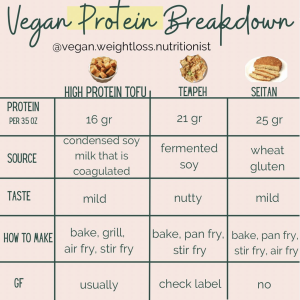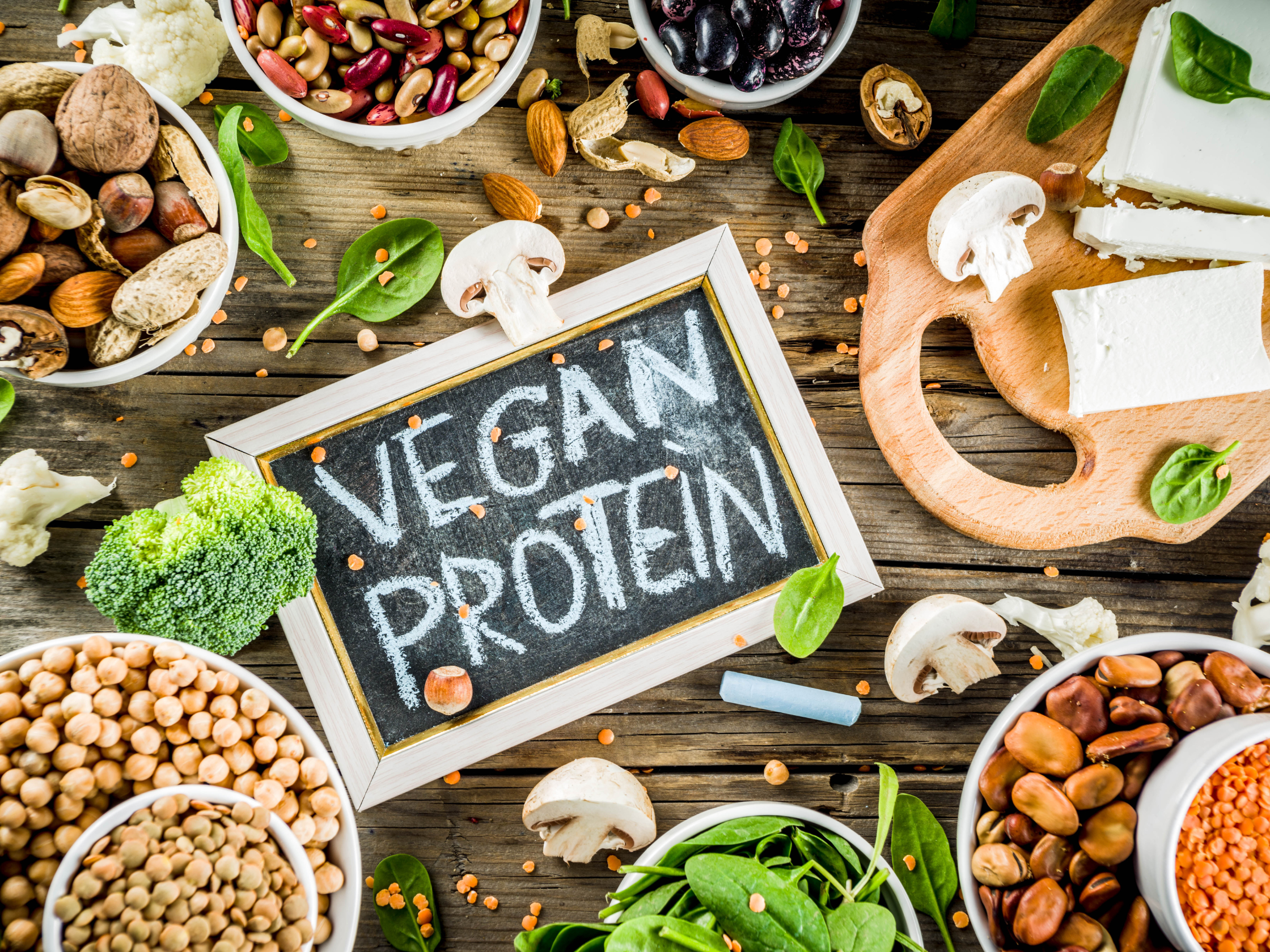A popular hot topic for plant-based diets is PROTEIN. One of the common reasons people do not lose the weight they desire is because they are not getting enough protein as a vegan. Do you wonder if you’re getting enough protein to meet your weight loss goals? Eating an adequate amount of protein is key for maintaining muscle mass, which helps keep your metabolism revved. One of the biggest things that impedes weight loss is hunger. People are far less likely to stick with a nutrition or diet plan if they experience high levels of hunger. Protein is the most satiating of all the macronutrients.
You can get enough protein while following a plant-based diet, you just have to be strategic. Here’s the (not-so-) secret formula.
The current RDA is 0.8 g/kg (0.36 grams per pound) body weight and the Acceptable Macronutrient Distribution Range for protein intake for adults older than age 18 years is 10% to 35% of total energy. According to this calculation, if you weigh 160 pounds, you need about 58 grams of protein per day. The goal is to hit roughly 20 +/- grams of protein at meals alongside fiber and color with the right portion sizes for you to start seeing results.
There are two important things to keep in mind here:
1. This minimum requirement is to stave off health problems, not an optimal amount.
2. This recommended amount is for sedentary people, not those who exercise regularly (and especially not for those who strength train).
Here are a few situations in which your protein needs will increase above the recommended amount:
-
You’re in a calorie deficit. (A higher protein intake will prevent muscle loss along with fat loss.)
-
Some research suggests that we may need more protein as we age because our rate of absorption decreases.
Vegan Protein Ideas
It is important to understand the composition of your food because this will impact your metabolism, fullness at meals and also your body composition! Think fat loss.
While some foods may have some protein in it, that doesn’t make them “great” protein sources! Here are some plant-based protein ideas that will help with your weight loss goals:
-
Lentils are a great source of carbohydrates and fiber as well as protein. In fact, they offer about 12 grams of muscle-building protein in a single serving (1/2 cup cooked).
-
Seitan is a plant-based meat substitute made out of wheat gluten. It’s made by rinsing prepared wheat dough to remove the starch, leaving a sticky mass of protein that can be flavored, cooked, and used in a number of dishes. The amount of protein per serving of seitan can vary depending on what ingredients were used to make it. For example, seitan products that include soy or chickpea flour can offer additional protein. A 3.5-ounce serving of seitan usually contains 20–25 grams of protein. That’s roughly equivalent to animal proteins such as chicken and beef.
-
Greek Style yogurt- yes, there are vegan versions of Greek yogurt made from plant-based ingredients. These vegan Greek yogurts are typically made by blending and straining plant-based milk to create a thick, creamy consistency similar to traditional Greek yogurt. These vegan versions are fortified with vitamins and minerals, such as calcium and probiotics. Typically pack 15-17 grams of plant protein per serving!
- Beans and legumes like chickpeas are an amazing source of carbohydrates, fiber and offer MINIMAL plant protein roughly 6-9 grams of protein per 1/2 cup. Beans are a starchy protein meaning they yield 3/4 carbs to 1/4 protein-so NOT a great protein source when following a plant-based diet. Magnesium is another key player in beans, which is an important mineral in our body.

Tempeh, Tofu, and Edamame. Soy-containing foods such as tempeh, tofu, and edamame all offer a complete plant protein containing all amino acids. They are one of the strongest, most animal-like protein in terms of chemical makeup.
If you are having trouble eating enough “good” protein on a plant-based diet and just winging it every day, let’s chat – Click to Apply! It’s important to understand how to plan your meals, shop for the healthy items, and monitor your protein intake in order to be successful in reaching your healthy weight as a Vegan.
Keep calm, and protein on!

